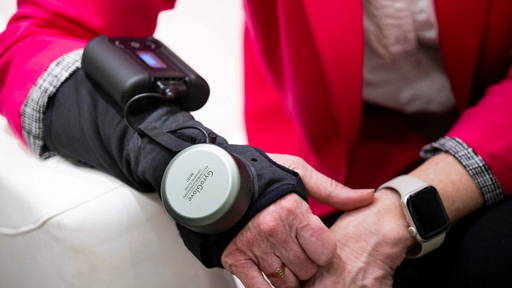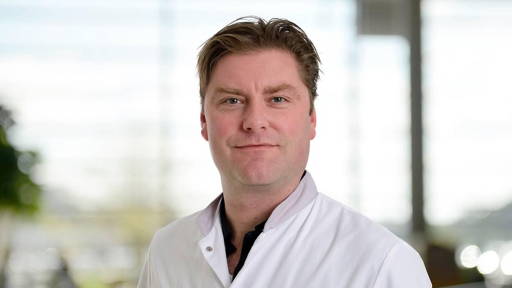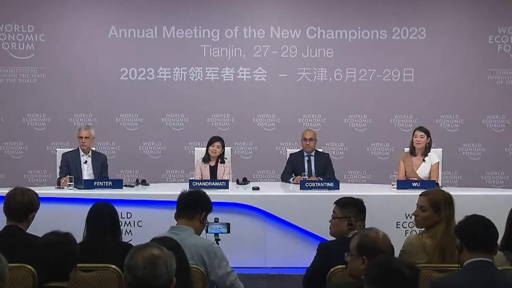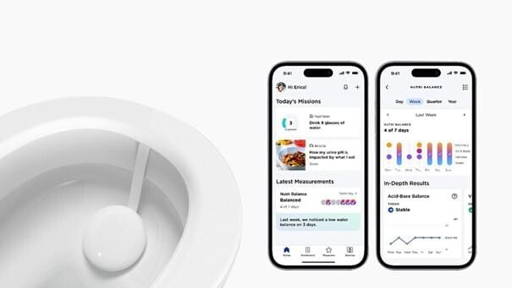The convergence of fast moving mobile technologies, big data, and open platforms have enabled a permission-free environment for nurses to invent, create, rapidly iterate, and innovate. 20 million Nurses across the globe are jumping in shaping new roles, new patient experiences and establishing themselves as essential partners in the digital transformation and democratization of access to care and treatment.
"Nursing is a career with vast opportunities to improve health outcomes and human experience, and lead research, innovation, policy, and systems management. However, the nursing profession is often portrayed rather narrowly, and considered, by many, as a job performing and managing prescribed tasks,” says Butler. The fee-for-service business model of health care also does not stimulate the broader deployment of nurses' talents.
"In most health systems, physician activity, like diagnosis and treatment, drives revenue, research and innovation. Nursing services are considered labor expenses. Health systems haven’t built budgets to meaningfully include nursing in activities beyond patient care or scoped nursing roles to include research, insights gathering, innovation, and technology integration. And nurses aren’t the decision makers over those budgets, despite being the largest segment of the health workforce and having the closest connection with the patient. This wealth of experience and insights, which is crucial for the development and scaling of promising digital health care applications, remains untapped."
That is why Butler is committed to changing the mindset among health care administrators and expanding education and career development for nurses that include business skills and leadership competencies.
 Shawna Butler is a nurse economist and founder of the global 'EntrepreNURSE' movement. Her varied portfolio includes healthcare, technology, and implementation projects. Butler is constantly scanning the globe for game-changing ideas and the thought leaders provoking them.
Shawna Butler is a nurse economist and founder of the global 'EntrepreNURSE' movement. Her varied portfolio includes healthcare, technology, and implementation projects. Butler is constantly scanning the globe for game-changing ideas and the thought leaders provoking them.
EntrepreNURSE in Residence
Butler leads the Exponential Medicine team at Singularity University, a think tank in Silicon Valley that offers educational programs in the field of fast-growing technologies. It was at the Exponential Medicine conference in 2014 she heard Lucien Engelen, then director of the Radboudumc REshape Center, speak about his #nurse-included mission. "I've been attending health tech conferences for years, and never see nurses in the audience or on stage. This was the first time I heard anyone specifically call out the importance of nurses in technology and innovation." They got into conversation and committed to working together. "When an organization in the US wants to strengthen and activate their innovation agenda, they hire an ‘entrepreneur in residence’,” says Butler. This sparked her the idea to launch at Radboudumc Reshape the ‘EntrepreNURSE in Residence’, a trademark she filed on May 12, the birthdate of the original entrepreNURSE, Florence Nightingale. At the invitation of Engelen, she is a guest entrepreneur at the Radboudumc REshape Center in the Netherlands focused on amplifying nursing participation in innovation.#Patients-included part of nursing’s DNA
Butler was attracted to the Netherlands by the high quality health outcomes, equitable access, and care it delivers to its citizens and the reputation of a being a leader in digital health technologies. "The US hasn’t financially or politically embraced that everyone has the right to health care and equal access to it. Healthcare-for-all feels like a fixed national value activated across the Dutch health ecosystem", Butler says.Nurses bring urgency to system transformation because they are closest to the suffering"It’s one of the reasons she is surprised that nurses in the Netherlands often do not have decisive influence in health system leadership, policy, operations, and innovation. "The further decision makers are from patients’ experiences, the more challenging it is to sustain the ‘patients-included’ commitment and it becomes increasingly harder to connect new work solutions to the workplace, workforce and needs of patients.” “Everything nurses do is patients-included”, says Butler. “Nurses bring urgency to system transformation because they are closest to the suffering. In addition, nurses are accustomed to continually adapting to changes, thinking in a solution-oriented way and working in teams. With greater exposure to emerging technologies and inclusion at the strategy and operation levels, nurses will be stronger partners in accelerating digital health innovation."
Effective solutions
Butler maintains that when nurses and technologists are brought together, effective solutions are created that meet both patient and care team needs. This belief is also supported by REshape. "The REshape innovation team observed that in order to scale up patient-centered healthcare solutions, it is essential to involve nurses." Butler explains. When Lucien Engelen observed that projects suffered when nurses were not included and that nurses were repeatedly not involved in innovation projects, he launched 'nurse-included' in 2014 as a major focus area at Radboudumc REshape. “It’s a movement I’ve been working on since the beginning of my career. I was thrilled someone had named, launched and placed a spotlight on it!" Butler sees in practice across the globe that nurses are not part of innovation teams or that they are brought in at very late stages. "Developers of medical or healthcare applications focus almost exclusively on physician input. This is important for scientific, procedural and diagnostic guidance. But there are many patient and provider usability, acceptability, and safety considerations of an application that nursing experience is indispensable in discovering. Developers create well-loved, effective solutions by considering the entire patient journey."Provider journey
The provider journey is also extremely important, says Butler. "If a new tool is intended to support both the care provider and the patient, it must consider how it fits in the workflow so that it actually improves safety and performance and removes friction. She indicates that the gains of new technology have not always been more patient-friendly and more effective. "From my own experience with the 'computer on wheels', which promised to improve the efficiency of data collection during a clinical encounter, it often had just the opposite effect. I spent more time rearranging furniture in a patient room to wheel the C.O.W. in, adjusting the screen so I could examine the patient and keep data private from guests, and then clicking around drop down menus and scrolling through questions that weren’t relevant to that particular patient. It often annoyed patients and frustrated me. I missed many of the features of the private charting stations.”'Decisive role of nurse in care innovation is global trendsetter'That is why Butler believes it is necessary for nurses to be involved in innovation, from decision making and design through to testing in practice. "The pursuit of innovation is improving people’s lives and creating value. I think better solutions will be created sooner when we include the insights and experience of those on the front line of care: nurses, language translators, social workers, nutrition consultants, pharmacy, cleaning staff, and occupational therapists.” An important part of her mission as 'entrepreNURSE in residence' is building institutional awareness, amplifying the contributions, and increasing participation of nurses in innovation agendas at both the strategic and operational level.
Design a career differently
The other part of Butler's entrepreNURSEship consists of shaping nursing education and careers differently. "Instead of training and hiring employees into jobs, we need to think in terms of talent and career development that leads to valuable expertise, career longevity and fulfillment. How do we retain experienced veterans and inspire the next generation to enter the caring professions? I think it’s critical we think in terms of talent, technological innovation, and career." This is not so difficult to realize, thinks Butler. But it does require a shift in mindset at all levels of health care leadership. "How beautiful it would be if we began appointing nurses into roles of 50% clinical work and the other 50% participating in education, research, innovation, and project management? For too long, moving into these roles and advancing your nursing career, meant moving away from clinical care. But if we design nursing roles to include the broader range of health system activities, the profession becomes more attractive, we tap into the full range of skills and we address the workforce shortage by keeping clinical and hand skills active longer. Moreover, the continued clinical experience makes the nurse a more effective researcher, educator, manager, or policy influencer." In addition to adjusting the job description, the nursing curriculum according to Butler should also change, so that nurses are prepared for innovation, entrepreneurship, and management. In this context she finds the education HBO-V 'Health & Technology', which exists in the Netherlands for several years, a great initiative.(L)attitude for experimenting
When it comes to innovation, Butler would like more latitude for experimentation and iteration in health care environments. "Digital applications are great candidates for rapid iteration. When a pain point is identified, the person(s) experiencing it can in real time and circumstances, define the problem, experiment and test solutions, and refine it toward implementation more broadly. This cycle contains a measurement component that rapidly evaluates the effectiveness and value of the solution."Nurses see a lot of injustice; patients are not treated well at timesAccording to Butler, it’s important to establish a culture of continuous learning, experimentation and providing safer care and better outcomes using technology. “A culture that says: curiosity is welcome here!” Here too, the mindset of clinicians and managers is critical to achieving this. "I hope my presence can boost this", says Butler. She indicates that the world is following with interest what is happening in the healthcare sector in the Netherlands. "The Netherlands is known as a pioneer in healthcare innovation. If you succeed in giving nurses a decisive voice and prominent position in technological innovation, you’ll be setting a global trend with that."
EntrepreNURSE converts frustration into a super power
An entrepreNURSE, according to Shawna Butler, is “one who is restlessly curious, questions the status quo, and embraces new ideas, not only when there are problems, but also when things are going well. An entrepreNURSE is obsessed with questions such as how can we do things better, safer and reach more people and who will dare to go to places where nurses are new, novel, and have never been. Everything I’ve ever done, I’ve never done before, but that hasn’t stopped me. That’s actually the history of nursing: seeing a need, thinking about how to solve it, and having a bias toward action." Butler indicates that besides curiosity and passion, frustration is also an important motivator for an entrepreNURSE. "Nurses see a lot of injustice; patients are not treated well at times. That moral injury effects nurses and that growing frustration is often what prompts them to action and sustains their conviction when reaching a solution becomes really difficult." It is Butler's goal to make the entreprenurse role common within healthcare enterprises so that nurses are partners and leaders in innovation, experimentation, and implementation.Effective cooperation
Nurses and tech innovators coming together to create effective solutions. Butler sees already happening in many places in the world, including the REshape Center where nurses operate as fellows. She also sees good examples internationally. "In New Zealand, Jenny Kruger is a midwife who, together with biomedical engineers, has developed a smart wearable for women to treat urinary incontinence. The data from the smart device customizes pelvic floor training, sends training reminders, and a provides support community for coping with the condition. Thanks to the intuitive interface can women easily work with it." A colleague in the US, Marion Leary, created a solution for first responder training and the ‘resuscitation desert’ problem. She’s creating solutions for teaching first-responder skills using VR technology and content. "I think VR applications that create immersive experiences for expectant mothers could be a great way to prepare them for successfully breastfeeding their child," says Butler. "Stress and fatigue during the first week after birth is a tough time to learn anything. Many new mom’s give up without lactation support. Breastfeeding is so important for a newborn child and we have technology that can bridge that support gap." Shawna Butler is a nurse economist and founder of the global 'EntrepreNURSE' movement. Her varied portfolio includes healthcare, technology, and implementation projects. Butler is constantly scanning the globe for game-changing ideas and the thought leaders provoking them.
Shawna Butler is a nurse economist and founder of the global 'EntrepreNURSE' movement. Her varied portfolio includes healthcare, technology, and implementation projects. Butler is constantly scanning the globe for game-changing ideas and the thought leaders provoking them.






